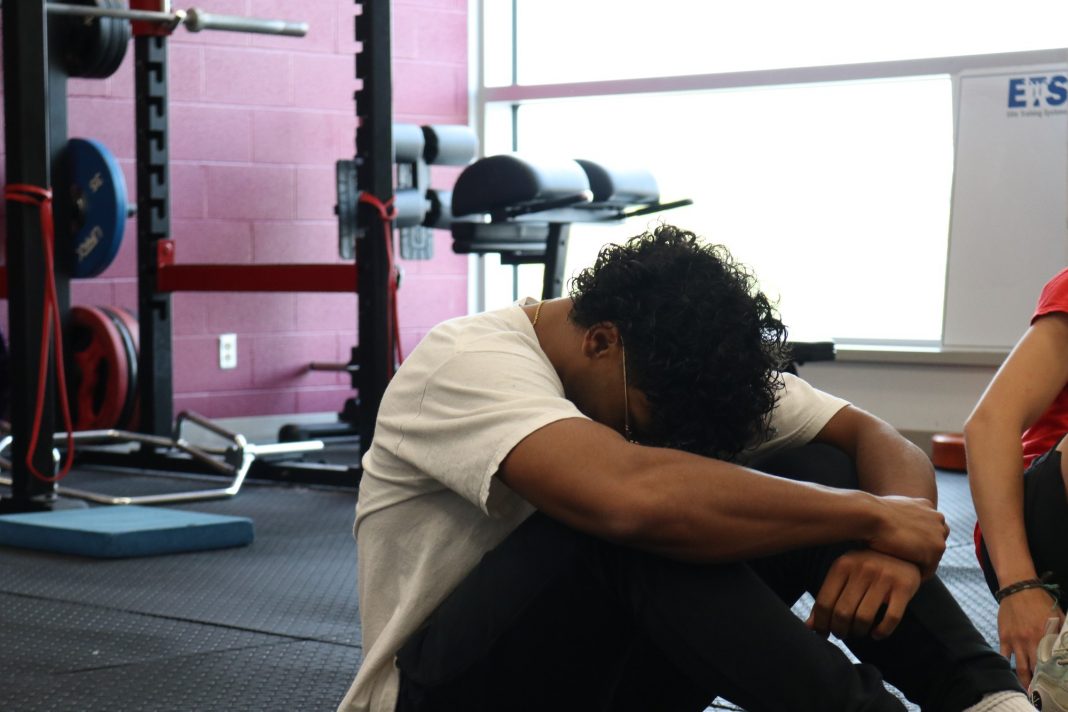Think about the last time you had a bad day. From the moment you woke up, one thing after another went wrong. Feeling down is the natural response to this situation, but in the world of sports, athletes aren’t allowed to have bad days.
Most athletes have been told at least once to “fake it until you make it.” Although meant as encouragement, this seemingly helpful advice often does more harm than good.
Durham College’s athletics department has been changing the way they view mental health. Last year, the volleyball teams at Durham tried a mental health tracking app called “Hone.”
This is a once-a-week survey that all the athletes on the team must participate in. It contains seven questions about a range of things that could be affecting their mental health, from fatigue and stress levels, to forming and keeping healthy relationships.
Lucas Pitchl, the assistant coach of the men’s volleyball team at Durham College liked that the coaches were able to see their team’s survey results amid the fast pace of the season.
“If they were low somewhere, serious or not, we would focus on that stressor,” Pitchl said.
“Some people struggle to voice things in person. It’s a way of hiding behind your phone but still being able to address something that’s bothering you, because mental health matters and it affects performance,” he added.
Although the men’s team is no longer participating in Hone, Pitchl advocates for athletes to reach out for help. Dwayne Cochrane, the head coach of the men’s volleyball team decided not to move forward with Hone after seeing limited results from their experience with it last year.
“Fake it till you make it is only good in some scenarios, like in a team atmosphere in the heat of the moment, if you’re trying to keep your team alive,” Pitchl said.
In this new era of sports, athletes have the choice to hold their feelings in, or share and get help. “They need to voice it, whether it’s direct to coaches or teammates, they need to speak up and get the help they need. School and sport is stressful,” Pitchl added.
Not only college-level athletes face mental health challenges. Even the people who have all the proper channels of help at their disposal can still feel isolated.
Naomi Osaka, a top-rated professional tennis player, has been openly battling depression since 2018. She even withdrew from the French Open in 2021 and declined press conferences due to social anxiety and questions that harmed her mental health. She was fined $15,000 for this. But she would’ve been fine to fake it, continue to play and attend the press conference. Right?
An article published by True Sport says, when you tell an athlete “fake it until you make it,” you’re willingly telling them to pretend to be something they’re not.
“Having resiliency and hiding how you feel aren’t the same thing,” the article notes.
Ronda Rousey, a professional wrestler admitted to contemplating suicide following her loss at the UFC 193 to Holly Holm in 2015. While on The Ellen DeGeneres Show, Rousey said she felt like “nothing” if she wasn’t a winner.
Rousey didn’t appear on the show until 2016, she kept her feelings to herself for a year before opening up to the public about her struggles. She believed that putting on an act of being content was the right thing to do.
The stigma behind mental health in sports still has a long way to go before it can stop being such a prominent topic. “Fake it until you make it” is something that is still said at every level of sports. Hiding true feelings to continue competing is something no one should have to face alone.
The support systems offered at schools and in the professional level differ, but the cause of someone’s issues could be something as small as a saying that’s been around for years.
DeMar DeRozan tweeted about his depression getting the best of him in 2018. Following that admission, he told the Toronto Star, “It’s one of them things that no matter how indestructible we look like we are, we’re all human at the end of the day.”
No one can ever fully understand what someone else is going through, we only know our own struggles. Why is it that such a common saying has so much power over a whole community? Being told to cover up how you’re truly feeling with a fake smile isn’t the way to deal with the mental health of an athlete.
“You need to stick it to the man and speak up,” Pitchl says. “Don’t fake it. Speak up.”




